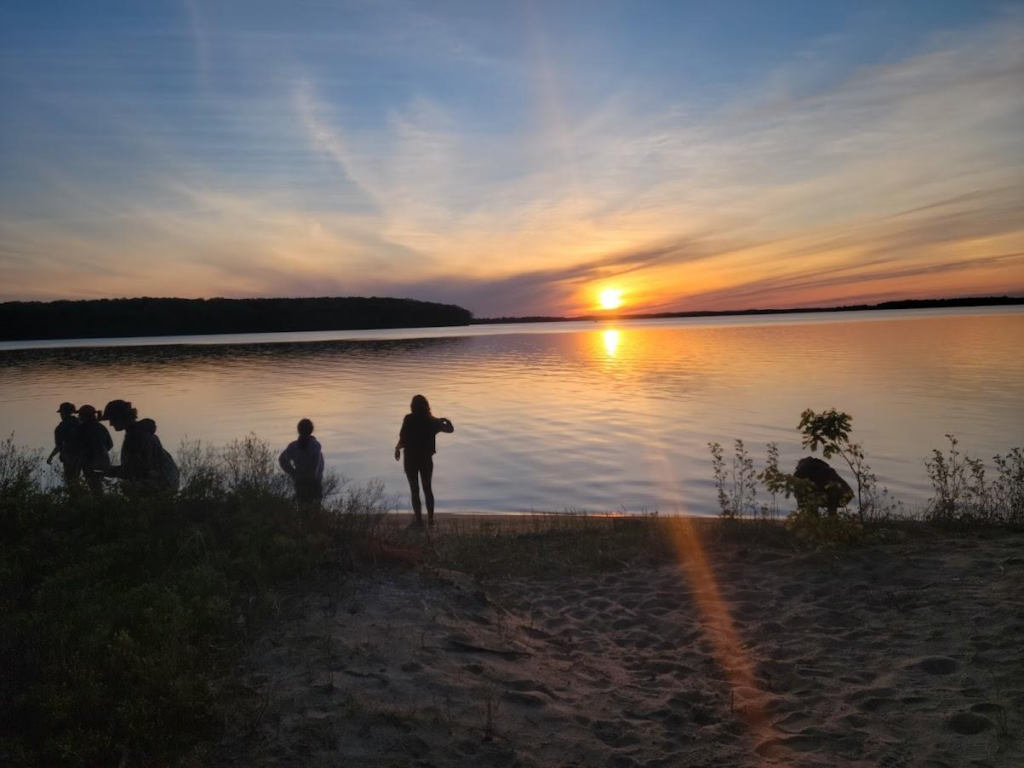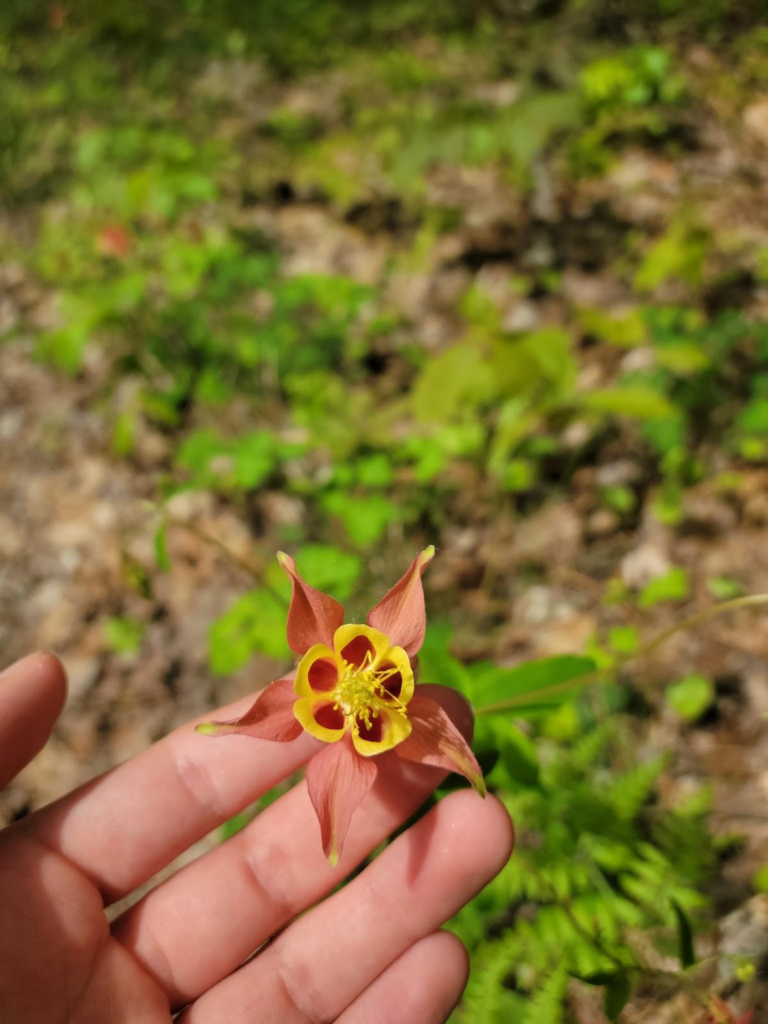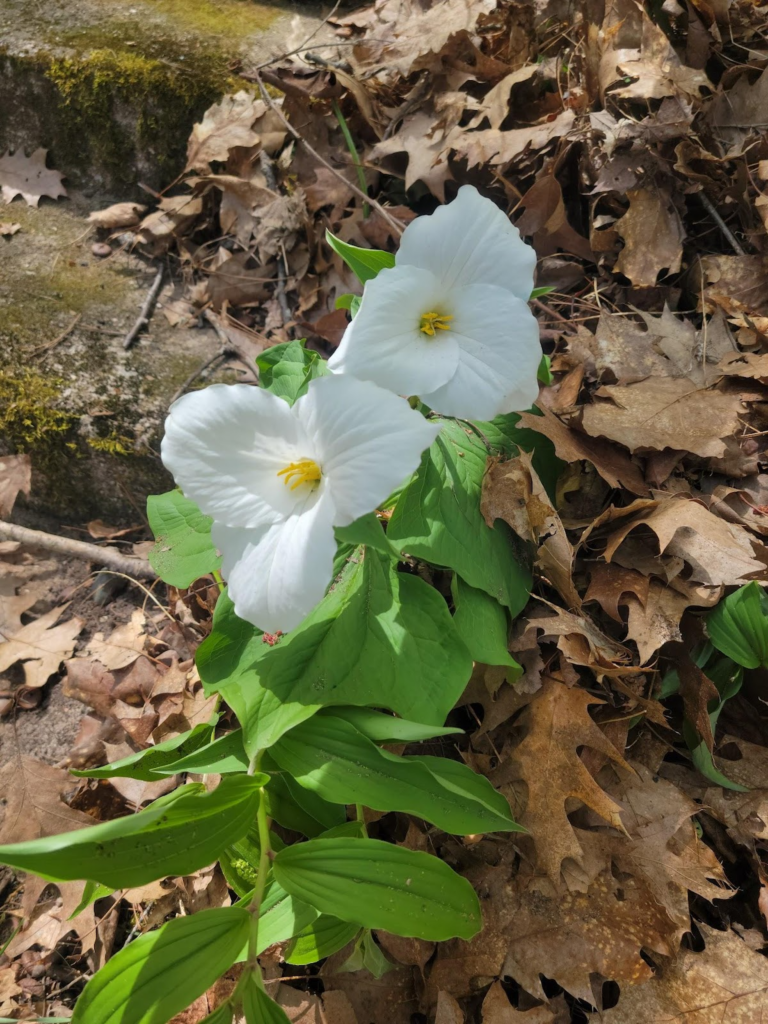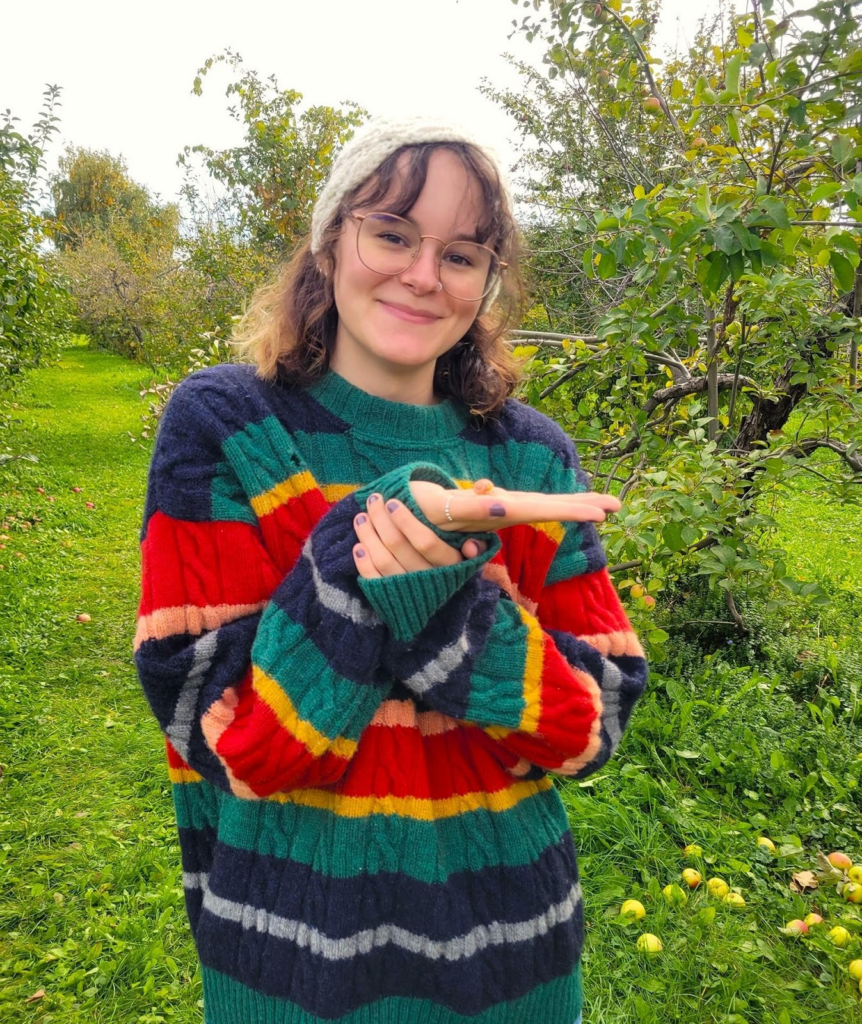by Dana Martin
From May 9th to August 19th, 2022, I was fortunate enough to be able to conduct research for my MSc thesis at the University of Michigan Biological Station (UMBS). UMBS is located in the transition zone between mixed hardwood and boreal forests, in the northern lower peninsula of Michigan. My summer at UMBS exceeded all of my expectations. Aside from research, my summer was full of hiking, swimming, exploring, and spending time with other incredible researchers, staff, and students (Figure 1). The community that UMBS cultivated was not something to miss out on. Everyone was eager to lend a hand, and there was always someone to talk science or bounce ideas off.

Figure 1. UMBS staff and researchers on Douglas Lake, Michigan
It was an amazing experience to live off-the-grid for almost four months and be surrounded by the enchanting wildlife. Some of my favourites included Trillium grandiflorum (large white trillium), Aquilegia canadensis (red columbine), Gaultheria procumbens (wintergreen), Setophaga ruticilla (American redstart) and Gomphurus vastus (cobra clubtail) (Figure 2). The living conditions at UMBS were far from luxurious, but I believe they were a great addition to the magical experience. I was placed in graduate student housing which consisted of a rustic cabin made of wood and tin (which I shared with a roommate and the local mice), two beds, two desks and two dressers. It felt like an elevated version of camping, which I loved. Wi-fi was limited inside the cabins, which allowed me to disconnect in the best way possible.


Figure 2. Left: Aquilegia canadensis (red columbine). Right: Trillium grandiflorum (large white trillium).
While at UMBS, I set up and conducted an experiment looking at the effects of insect herbivory (the act of feeding on plants) on local pollinator communities. The main goal of my research was to evaluate how simulated herbivory (via hole-punchers) influenced pollinator visitation through the floral traits of Asclepias incarnata (swamp milkweed). To do this, I grew 90 plants and exposed them to different levels of herbivory (5% or 50% leaf removal) at different times in the season to mimic potential future shifts in insect abundance due to climate change. Then, I measured various floral and plant traits and conducted visual surveys to see how many and what kinds of pollinators visited the plants. When I first arrived, all of my time was dedicated to setting up the experiment which was very labour-intensive, but as the season progressed I moved on to data collection. I was grateful to have a research assistant, James Connolly, without whom the work would not have been possible, nor as enjoyable. Throughout the summer, I also worked alongside two great researchers, Dr. Nate Sanders, and Dr. Mariano Rodriguez-Cabal. They provided me with the knowledge and expertise needed to problem solve and conduct a successful experiment.
The excellence award that I received through the Quebec Center for Biodiversity Sciences (QCBS) allowed me to build and lead my very own experiment in such a wonderful environment. It gave me the means and encouraged me to pursue my research goals, explore my independence as a graduate student, and travel somewhere new. It also gave me the opportunity to network with a variety of people from different academic backgrounds, all of whom brought something special to the table. I am so grateful to QCBS for this unique opportunity and for facilitating all of the lasting connections I have made.

Dana Martin is a MSc student at Concordia University in Montreal studying under the supervision of Dr. Jean-Philippe Lessard. She first became interested in climate change and pollinator ecology while obtaining her undergraduate degree at the University of Ottawa. After learning about the consequences of decreasing pollinator health and populations, she felt compelled and impassioned to take action.

0 Comments